Last month IPPL launched the English translation of Ashapurna Debi’s Bakul Katha, translated from Bengali into English, by Lopamudra Banerjee. A report for Different Truths, by Dr. Amit.
The English translation of Bakul Katha, the third part of the famous trilogy of Ashapurna Debi, comprising Pratham Pratishruti, Subarnalata, Bakul Katha, was launched online by the Intercultural Poetry and Performance Library (IPPL) on October 3, 2021. Bakul Katha has been translated into English by Lopamudra Banerjee, a noted translator, poet, memoirist, editor, and short story writer based in Texas, USA.
Ashapurna Debi was a Jnanpith and Sahitya Akademi award winning Bengali writer whose trilogy narrates the story of three generations of Bengali women. Characters like Satyabati, Subarnalata and Bakul, the protagonists of the three novels, have become iconic not only in Bengali literature but the trilogy represents the history of women’s emancipation in India, especially in Bengal.
Lopamudra Banerjee’s English translation of Bakul Katha is subtitled Tale of the Emancipated Woman. Since the beginning of the pandemic IPPL has been quick to adopt technology and has organised many online poetry reading sessions, book launches and webinars.
The launch event over online platform Zoom and live streamed in Facebook was graced by Prof. Sanjukta Dasgupta, former Dean of Arts and Head of the Department of English at Calcutta University, herself an eminent poet and translator and the President of IPPL. She spoke about her association with the daughter of Ashapurna Debi, Nupur Gupta, when she was alive and living in Kolkata.
The granddaughter of Ashapurna Debi, Dr. Satadeepa Gupta Mallick, was also present at the event, joining from the United Kingdom. She spoke about her childhood experiences with her grandmother. The other speaker at the event was Prof. Amita Ray, a noted poet and translator, who highlighted the aspects of Lopamudra Banerjee’s work in Bakul Katha as a translator.
The panel discussion was moderated by Dr. Nabanita Sengupta and the inaugural speech was delivered by Prof. Jaydeepa Sarangi, the Vice-President of IPPL. The translator Lopamudra Banerjee joined from Texas, USA, and spoke about her journey in getting the translation rights and going through the challenging process of translating the mammoth third part of the trilogy.
The significance of this translation is manifold because the first two parts are already available in English translation and the third part was still to be translated when Lopamudra Banerjee decided to take up the task. After the panel discussion and the unveiling of the book cover, Lopamudra Banerjee read an excerpt from the book.
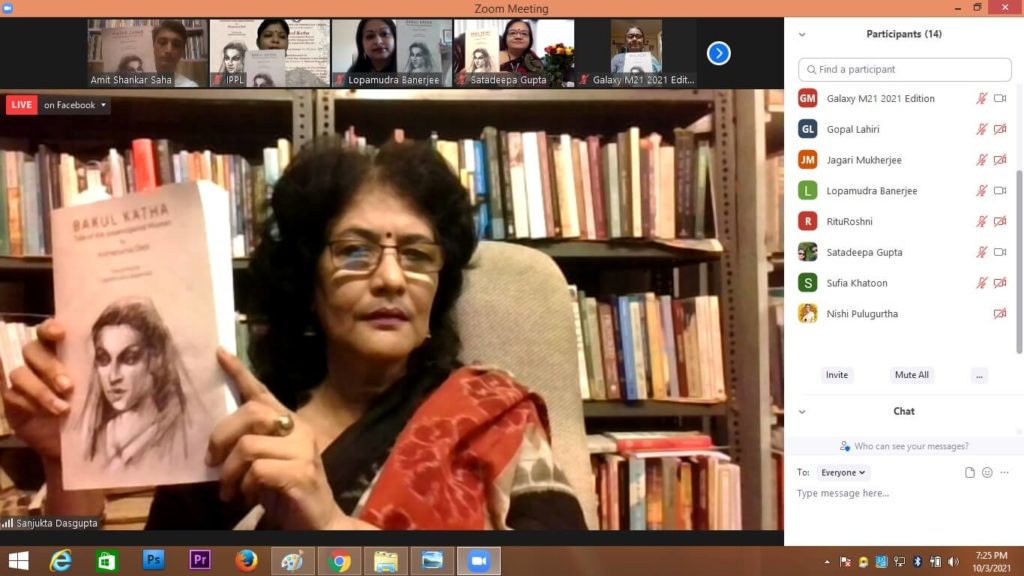
Dr. Sanjukta Dasgupta 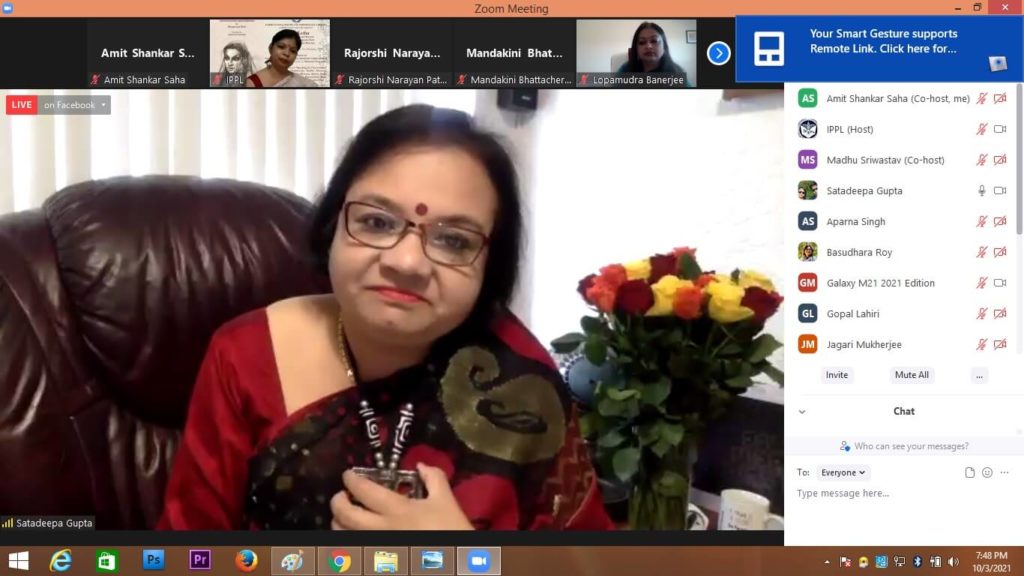
Satadeepa Gupta_Ashapurna’s granddaughter 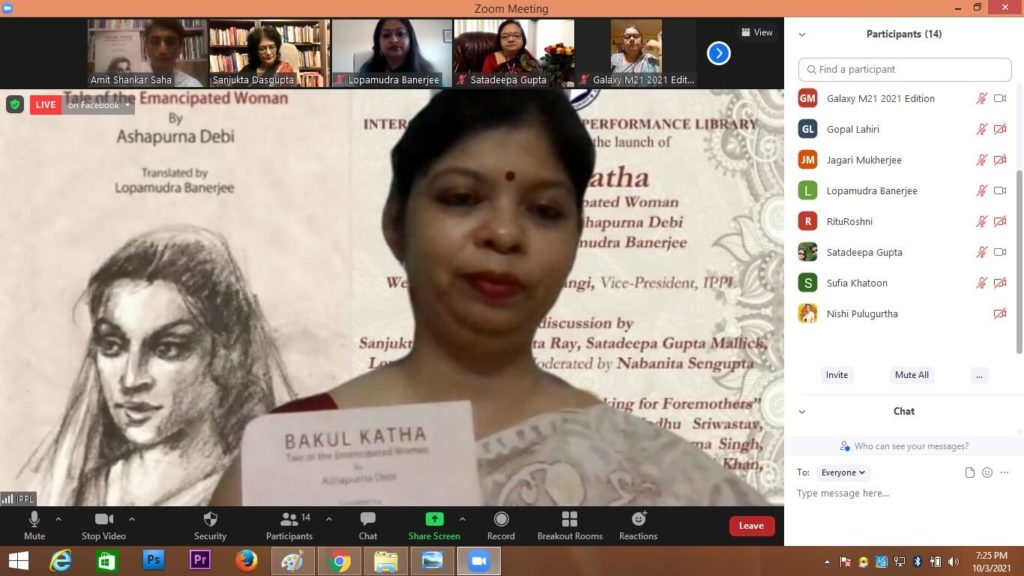
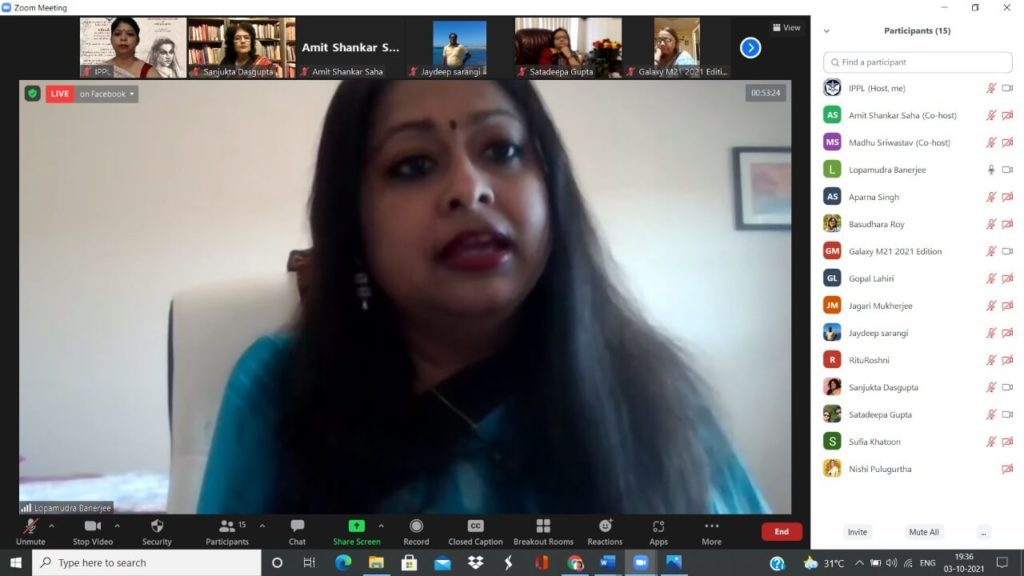
Lopa
The first part of the programme was followed by a poetry reading session by some poets of IPPL including Lopamudra’s daughter Sharanya Banerjee. The theme of the poetry reading session was appropriately selected as “Speaking for Foremothers”. When the renowned thinker and theorist Prof. Dipesh Chakraborty asked the question “Who Speaks for India’s Past?” in his eponymous essay, there lay in that question a latent question of who speaks for India’s women’s past. The answer to this latent question lies not in history but in literature and Ashapurna Debi’s trilogy is part of that canon of literature.
The poets shared their creative verses not only about their own foremothers but also about their literary foremothers as well as foremothers cutting across cultures who all traverse the domestic space. Lopamudra Banerjee, by making this novel accessible to a wider readership through her translation, has contributed immensely to not only translation studies but also gender studies.
Prof. Sanjukta Dasgupta made the pertinent point that Ashapurna Debi and the famous feminist Simone de Beauvoir were contemporaries. Ashapurna Debi may have heard of Simone de Beauvoir, but it is doubtful that Simone de Beauvoir would have heard of Ashapurna Debi. Perhaps now, with the availability of the entire trilogy in English, the language barrier would be fully overcome and Ashapurna Debi will get a global space. The book is published by Avenel Press and is available online.
Photos sourced by the author

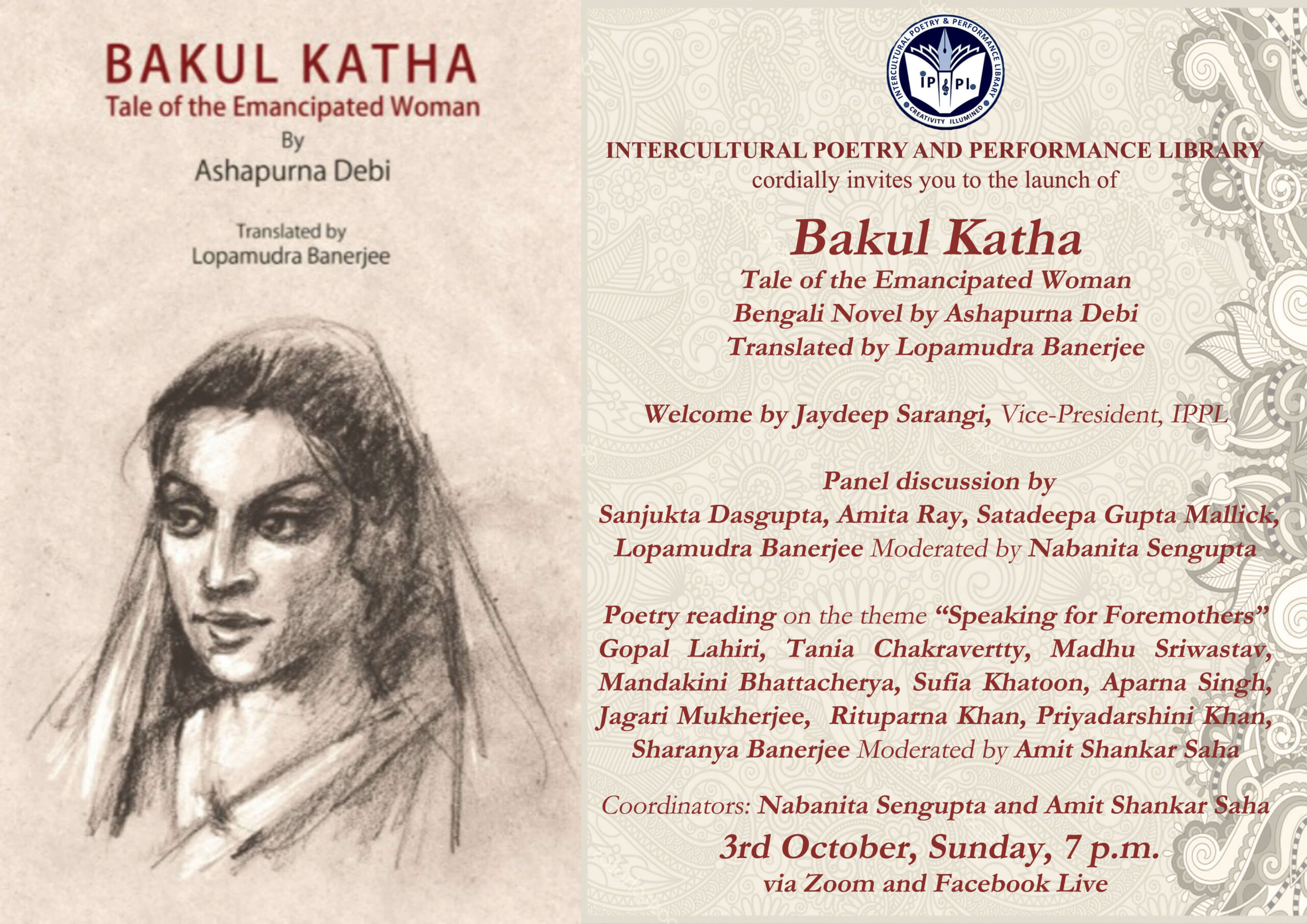
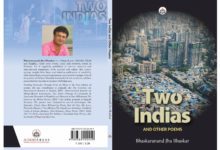


 By
By
 By
By
 By
By
 By
By